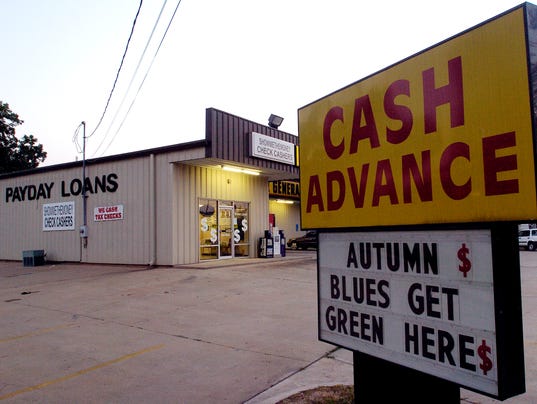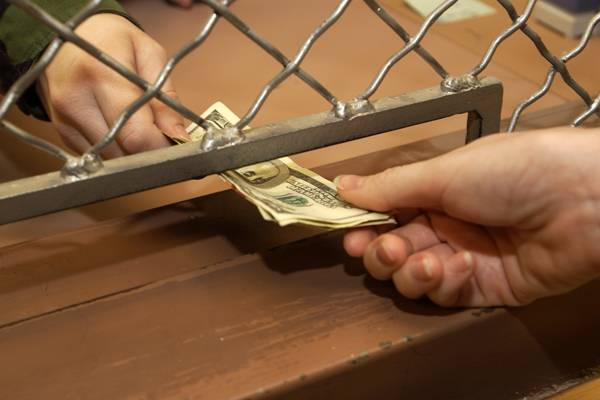Annie
Diamond Member
- Nov 22, 2003
- 50,848
- 4,827
- 1,790
Is the Government Acting Like a Payday Lender?: Banks want to pay back their bailout loans early, but Treasury doesn't want to let them go. - Reason Magazine
Is the Government Acting Like a Payday Lender?
Banks want to pay back their bailout loans early, but Treasury doesn't want to let them go.
Katherine Mangu-Ward | April 23, 2009
Everyone knows that you should read the fine print before taking out a loan, whether it's $100 from a payday lender or $100 million in bailout loans from the federal government. You'd think that no one would know this better than bankers themselves....
...Banks who jumped at the bailout money now seem surprised to discover that the fine print gave the government the right to buy stock in the bank at a specified price for up to 10 years, essentially retaining an ownership stake for that period. If someone showed up at my door and offered me an enormous sum of money on the condition that I take it right now! hurry! hurry! hurry! and sign here! I'd be a little suspicious. Doubly so if that person introduced himself with that age-old phrase "I'm from the government, and I'm here to help." Banks were led to believe the warrants provision was minor, and wouldn't be a problem when the time came to negotiate repayment terms. But if there's anything this financial crisis should have taught us, it is to be skeptical of lenders who casually promise that paying back enormous loans won't be any problem at all (ask anyone with an adjustable-rate mortgage).
Of course some banks didnt jump, they were pushed. Rep. Tom McClintock (R-Calif.) noted that fact this week as he proposed legislation to re-write the terms of repayment of TARP funds. "Banks which were pressured to accept TARP funding are now facing serious obstacles, uncertainty and continued government control in their efforts to return the funds to taxpayers," said a press released his office. McClintock said, the Administration says it wants out of the banking business but when it is presented with that opportunity it seems to balk. When banks want to give us our money back we shouldnt argue the point."
One of the banks that has paid back its loans is Centra Financial of Morgantown, West Virginia, which took $15 million at the beginning of the year. The bank's vice president John Fahey, told Fortune, "We're not TARP babies anymore." While his choice of words is troublingis Treasury infantilizing our banks?the sentiment is good. Want to get out from under your loan? Pay it back on the terms you agreed to, and have your lawyers do a better job of the fine print (and demanding clearer phrasing) next time. Of course, he is also trying to finagle a refund to the $750,000 his bank would have to spend to buy its warrants back from Treasury.
Among the bigger banks, Goldman Sachs has been the most vocal about wanting to return the TARP money ASAP in order to avoid government meddling. But recognizing the power of the "I'm rubber and you are glue" argument, they're not begrudging the feds a little profit on this transaction and not lobbying for a change in the terms: A spokesman for Goldman Sachs, said the bank "recognizes its obligation to U.S. taxpayers" to fully repay TARP assistance, including warrants."Taxpayers have the right to expect an appropriate return on investment."
Just as any lender does. When I took out a payday loan from ACE Check Cashing for an upcoming story defending under siege payday lenders in the print edition of Reason (stay tuned!), I got several large-print legal notices along with my pile of cash. One of them informed me that there would be no penalty for early repayment, others told me just how much I'd owe when the loan came due. Used to be, a major criticism of payday lenders was that once you had contracted with them, there was no way to avoid paying a large sum to extricate yourself. As the industry has become more regulated, and done more self-regulating to stave off government action, early repayment penalties have been abolished at most of the larger chains.
The Treasury department is making a habit of rewriting, or heavily reinterpreting the fine print. This is a luxury that private players like payday lenders don't traditionally enjoy. For those without political power, a contract is a contract.
So on some accounts, at least, it looks like Fine is wrong: Payday lenders are actually rather better behaved than government lenders.





